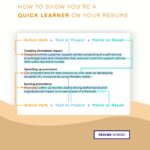It’s a common misconception that learning piano is a pursuit best left to the young. But Can Older Adults Learn To Play Piano? The resounding answer is yes! This article explores the factors contributing to success for older beginners, addresses common concerns, and offers practical advice for embarking on this rewarding musical journey.
Factors for Success in Piano for Older Adults
While life’s responsibilities can be demanding, consistent practice is key. Setting aside a dedicated time each day, even just 30 minutes, yields significant progress. Don’t wait for inspiration; schedule it! Prior musical experience or knowledge of music theory can be helpful, but it’s not essential. Many older adults successfully learn to read music. Talent plays a role, but dedication and consistent effort are far more crucial for success.
Realistic Expectations: What Can You Achieve in a Year?
Within a year of consistent practice, most older beginners can play enjoyable pieces like Schumann’s “Harvest Song”. While mastering complex concertos takes years of dedicated study, a vast repertoire of classical, pop, and folk tunes is accessible within a year. Many popular songs utilize just three chords, making them attainable even for novices.
Limitations and Possibilities for Older Learners
Learning piano is akin to learning a language. While fluency might take time, basic communication is achievable quickly. Similarly, while reaching concert pianist level is unlikely for older beginners, playing a wide range of music and enjoying the process is absolutely within reach. The joy lies in the journey, not just the destination.
Learning Pace: Adults vs. Children
Adults often grasp intellectual concepts like chord construction and scales faster than children. Initially, they may progress more rapidly. However, children often excel in coordination and technical skills, eventually surpassing adults with continued practice. This shouldn’t discourage older learners; the rewards of playing are immense regardless of pace.
Getting Started: Resources for Older Beginners
Online video courses offer a flexible learning environment. They allow for self-paced learning, repetition, and close-up observation. Supplementing lessons with live seminars or personal instruction provides personalized guidance and addresses individual challenges.
Conclusion
Age is not a barrier to learning piano. With dedication and the right resources, older adults can unlock the joy of music and achieve fulfilling musical goals. Embrace the journey, enjoy the process, and discover the lifelong rewards of playing the piano. It’s never too late to start.

